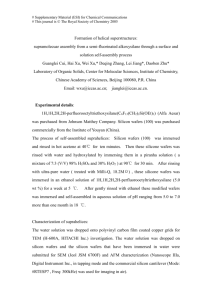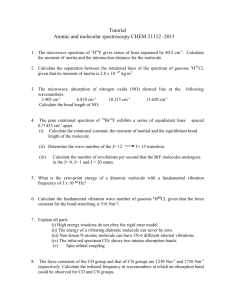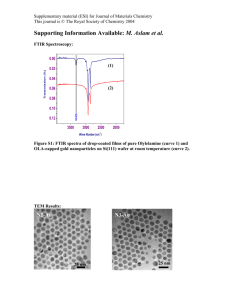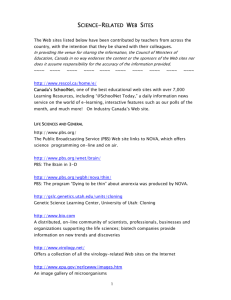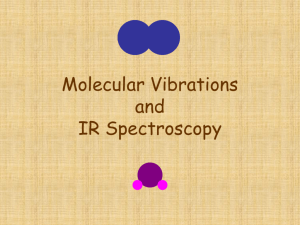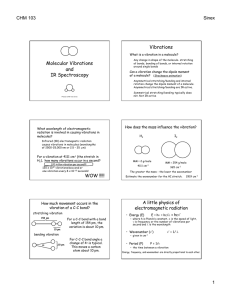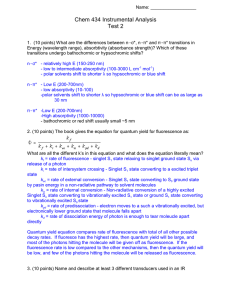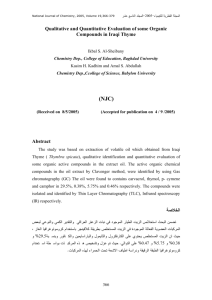Self-assembly of Well-Crystallized PbS Micro
advertisement
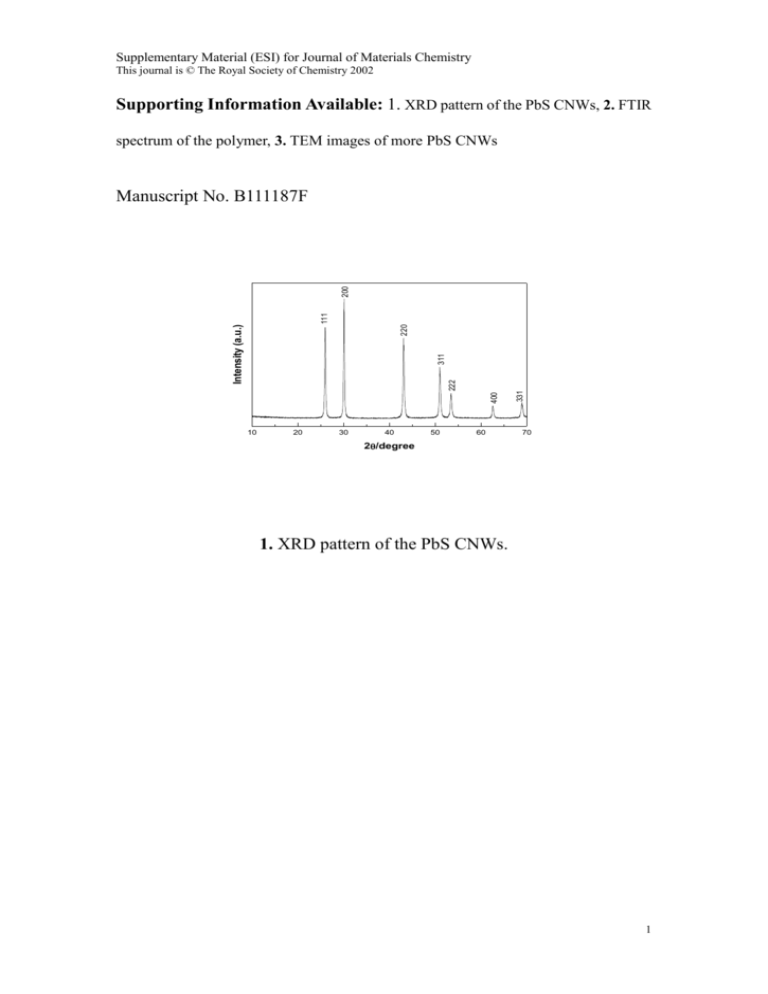
Supplementary Material (ESI) for Journal of Materials Chemistry This journal is © The Royal Society of Chemistry 2002 Supporting Information Available: 1. XRD pattern of the PbS CNWs, 2. FTIR spectrum of the polymer, 3. TEM images of more PbS CNWs 10 20 30 40 50 60 331 400 222 311 220 Intensity (a.u.) 111 200 Manuscript No. B111187F 70 2/degree 1. XRD pattern of the PbS CNWs. 1 Supplementary Material (ESI) for Journal of Materials Chemistry This journal is © The Royal Society of Chemistry 2002 (a) (b) 1.0 (b) 1480 1566 1648 3261 0.2 1314 0.4 819 1160 0.6 3366 Transmittance (%) 0.8 0.0 4000 3500 3000 2500 2000 Wavenumber cm 1500 1000 500 -1 2. FTIR spectra: (a) the standard spectrum of polyacrylamide obtained from The Aldrich Library of Infrared Spectra, Edition Ⅲ, No. 18127-2, (b) the spectrum of poly[N-(2-Aminoethyl)acrylamide], its sample was obtained from the solvent after the synthetic process was carried out by fully separating the PbS CNWs and evaporating the small molecules (ethylenediamine, H2O). Compared to (a), a characteristic peak of -CO-NH-R at 1566 cm-1 appeared in (b) resulting from the combination of the bending vibration of NH and the stretching vibration of C-N,* which was apparently different from that of –CO-NH2 [at ~1620 cm-1, δ(NH2)].** The wide peak at 3366-3261 cm-1 resulted from the stretching vibration of NH existing in the structure –CO-NH-CH2-CH2-NH2. The deformation vibration of the NH2 in -CH2-CH2-NH2 was located at 1615 cm-1, which could not separated from that of the stretching vibration of C=O (1641.8 cm-1). *L.C. Afremow, K. E. Isakson, D. A. Netzel, D. J. Tessari, J. T. Vandeberg, Infrared Spectroscopy Its Use in the Coating Inductry, Federation of Societies for Paint Technology, Philadelphia, 1969. **N. B. Colthup, L. H. Daly, S. E. Wiberley, Introduction to Infrared and Raman Spectroscopy, Academic Press, New York, 1975. 2 Supplementary Material (ESI) for Journal of Materials Chemistry This journal is © The Royal Society of Chemistry 2002 3. TEM images of more PbS CNWs. Notes The first number (X) in the photos ×103 shows the amplifications of the samples in this paper. 3
